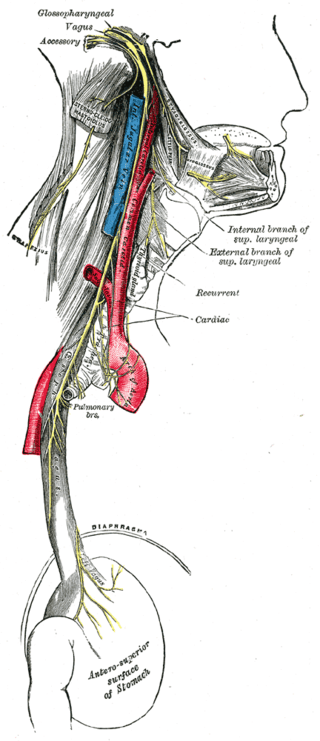The Vagus Nerve?
Is often referred to as the “wanderer” nerve due to its long and intricate journey through the body.
This remarkable cranial nerve (the 10th of the 12) plays a crucial role in numerous bodily functions, making it a star player in our internal orchestra.
Location and Function:
Imagine a conductor’s baton gracefully extending from your brainstem to your abdomen. That’s essentially what the vagus nerve resembles. It originates in the medulla oblongata, a part of the brainstem located at the base of the skull, and then branches out like a tree, sending fibers to various organs and tissues.
Its reach is impressive, influencing functions like:
- Heart rate and blood pressure: The vagus nerve helps slow down the heart rate and lower blood pressure, promoting relaxation and calmness.
- Digestion: It stimulates the release of digestive juices and aids in proper gut motility.
- Breathing: The vagus nerve helps regulate breathing patterns, promoting deeper and more relaxed breaths.
- Mood and stress: By influencing brain chemistry and neurotransmitter activity, the vagus nerve regulates mood and reduces stress levels.
- Immune function: It modulates the immune system’s response, helping to prevent inflammation and autoimmune reactions.
Why is this Nerve Important?
Acts as a vital communication link between the brain and body, forming the core of the parasympathetic nervous system, responsible for the “rest and digest” response. When activated, the vagus nerve counteracts the “fight or flight” response triggered by the sympathetic nervous system, promoting relaxation and recovery.
A healthy and well-functioning vagus nerve is associated with numerous benefits, including:
- Improved mental clarity and focus
- Reduced anxiety and depression
- Enhanced immunity
- Better digestion and gut health
- Stronger cardiovascular health
- Improved sleep quality
Activating the Vagus Nerve:
Fortunately, there are several ways to stimulate the vagus nerve and reap its potential benefits. Here are a few simple techniques:
- Deep breathing: Taking slow, deliberate breaths activates the vagus nerve, promoting relaxation and calming the mind.
- Singing or humming: Vocalization stimulates the vagus nerve through vibrations in the throat and chest.
- Yoga and meditation: These practices encourage deep breathing and mindfulness, both of which benefit the vagus nerve.
- Cold exposure: A short cold shower or splash of cold water on the face can activate the vagus nerve and boost alertness.
- Certain foods: Fermented foods like yogurt and kimchi contain probiotics, which can support gut health and indirectly benefit the vagus nerve.
By incorporating these techniques into your daily routine, you can nurture your vagus nerve and unlock its potential for improved health and well-being.
Remember, listening to your body and prioritizing activities that promote relaxation and stress reduction are key to keeping your vagus nerve happy and humming!


 Joan Cass
Joan Cass Joan Cass
Joan Cass